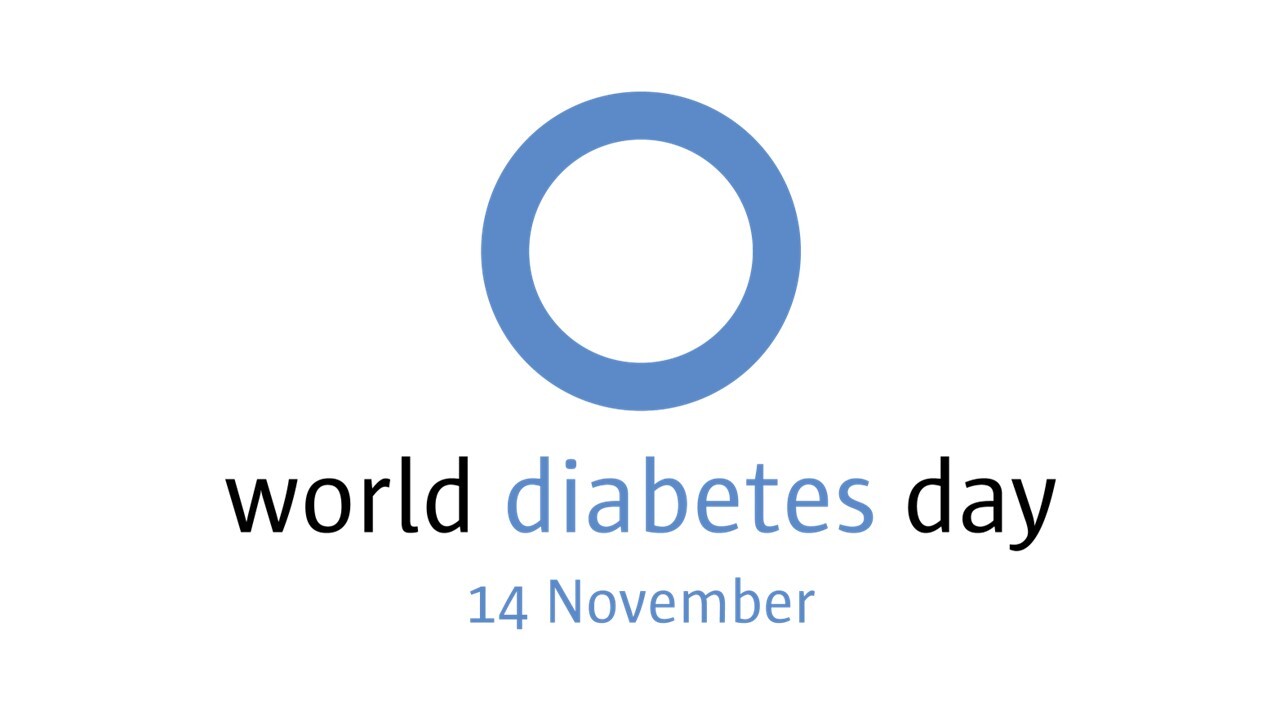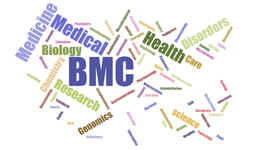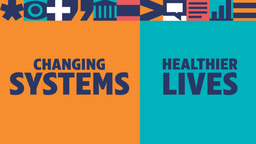World Diabetes Day 2025: Diabetes and Well-Being
Published in Sustainability and General & Internal Medicine

World Diabetes Day is observed every year on 14 November, marking the birthday of Sir Frederick Banting, who received the Nobel Prize for his role in the discovery of insulin in 1923. Since its launch in 1991 by the International Diabetes Federation and the World Health Organization, the campaign has grown into a global movement to improve diabetes prevention, care, and support.
This year’s theme, ‘Diabetes and well-being’, focuses on the relationship between diabetes and the workplace. A recent review article in Nature Reviews Endocrinology by Tomic and colleagues explores how diabetes mellitus affects employment and outlines future research directions to guide evidence-based workplace policies and support.
To mark World Diabetes Day, we are sharing Research Communities contributions and collections from across the Springer Nature community that explore the challenges of managing diabetes as a public health issue. These contributions reflect our commitment to supporting the Sustainable Development Goals, with particular focus on SDG 3: "Ensure healthy lives and promote well-being for all at all ages".
Research Communities Blogs
In a blog post, Senior Publisher Anna Lockhart introduces Dr Jennifer Sargent, Editor-in-Chief of Metabologia - a new sister journal to Diabetologia, the flagship journal of the European Association for the Study of Diabetes (EASD). Metabologia will publish articles that explore the clinical, translational and experimental aspects of diabetes, obesity and metabolic diseases, including complications and comorbidities, psychosocial aspects of the conditions, nutrition and exercise, and health economics and technology.
Professor Gaetano Santulli, the Editor-in-Chief of Cardiovascular Diabetology – Endocrinology Reports summarises perspectives from his recent Editorial on ‘From Needles to Pills: The New Era of Weight-Loss Medicine’ in a blog post that discusses the importance of oral GLP-1 therapies in providing easier, more accessible treatment to patients with obesity compared to injectable therapies that can be more intimidating and inconvenient for the patient. Maja E. Marcus and Sebastian Vollmer also share the story behind their recent paper in BMC Global and Public Health in a Behind the Paper blog, exploring their motivations for investigating the behavioral and socioeconomic factors limiting uptake of free NCD screening services in Indonesia.
Our Senior Publisher Victoria Hentschke also recently held Q&As with the Cardiovascular Diabetology Associate Editors of 2025, Dr. Didac Mauricio and Dr. Francesco Paneni, in which they discuss the rewards and challenges of editorial work. Didem Sanver and Victoria Hentschke also highlight some recent research highlights from across BMC Endocrine Disorders and Cardiovascular Diabetology, reflecting the shared objectives of both journals in advancing molecular, translational, and clinical research into diabetes. Additionally, as part of the #KnowTheAuthors initiative, Ruijie Xie provides a 2 minute video summary of a recent article on Improving 10-year cardiovascular risk prediction in patients with type 2 diabetes with metabolomics which can be viewed here.
Another Q&A with Dr. Daniel Vegh, Editorial Board Member (EBM) for BMC Oral Health, discusses the importance of the interrelation between diabetes and oral health, focusing on the clinical and preventive research activities of the Semmelweis University Diabetes Dental Research Group. In another post, Dr. Yoshifumi Saisho (EBM for BMC Endocrine Disorders) discusses his career researching the role of beta cell dysfunction in the pathogenesis of type 2 diabetes.
Open Access Book Chapters
Our Open Access Books portfolio also explores the link between diabetes and well-being. For example, a recent title on Skin Necrosis features the chapter Skin Necrosis of Diabetic Foot and Its Management by Joon Pio Hong, covering ulceration statistics, necrosis pathology, and surgical approaches. Another chapter by J. Karim Ead, Miranda Goransson, and David G. Armstrong explores this topic further, whilst Miruna Negulescu’s chapter on Necrobiosis Lipoidica examines a rare chronic skin condition often associated with type 1 diabetes.
Journal Collections
Across Springer Nature, we have a number of open Collections that welcome submissions from researchers exploring this year’s theme of diabetes and well-being.
Diabetologia are welcoming submissions to their special issue on Global Opportunities and Challenges. Scientific Reports are also welcoming submissions on Chronic disease management and older adults, with diabetes being a key focus due to its growing prevalence and impact.
At BMC, Cardiovascular Diabetology are highlighting a number of research topics related to the diabetes–cardiovascular interrelationship, including:
- Organoids as emerging models in diabetes and cardiovascular research
- The role of exerkines in diabetes and cardiovascular health
- Cardiometabolic and hepatic interconnections: from mechanisms to clinical implications
At their companion journal Cardiovascular Diabetology – Endocrinology Reports, open Collections include Cardiorelated aspects in thyroid disorders and Artificial intelligence in cardiovascular endocrinology: advancing precision in cardiometabolic care.
BMC Medicine currently have two open collections on Diabetes and infectious disease and The diagnosis and management of gestational diabetes. BMC Endocrine Disorders are also welcoming submissions related to diabetes and well-being, including collections on diabetes in older adults, diabetes in children and adolescents, and continuous glucose monitoring.
Finally, a collection on Systemic disease and oral health at BMC Oral Health has a specific focus on research exploring the impact of diabetes on oral health.
Get Involved!
To find out more out World Diabetes Day and the activities and events occurring within the community visit the official website and explore the hashtags #WorldDiabetesDay and #DiabetesLife on social media.
Follow the Topic
-
BMC Global and Public Health

An open access, transparent peer review journal publishing outstanding and influential research and opinion of broad interest to all professional communities involved in global and public health research, policy-making, implementation and delivery worldwide.
-
BMC Medicine

This journal publishes outstanding and influential research in all areas of clinical practice, translational medicine, medical and health advances, public health, global health, policy, and general topics of interest to the biomedical and sociomedical professional communities.
-
Scientific Reports

An open access journal publishing original research from across all areas of the natural sciences, psychology, medicine and engineering.
-
ISRCTN: The UK’s Clinical Study Registry

A primary clinical trial registry recognised by WHO and ICMJE that accepts studies involving human subjects or populations with outcome measures assessing effects on human health and well-being, including studies in healthcare, social care, education, workplace safety and economic development.
-
Diabetologia

This is an authoritative journal dedicated to the study of diabetes, offering high visibility through society membership, libraries, and social media.
-
Acta Diabetologica

This is a journal dedicated to publishing experimental and clinical research on diabetes mellitus and related metabolic diseases.
-
Cardiovascular Diabetology – Endocrinology Reports

This is an official companion journal to Cardiovascular Diabetology and is an open access journal publishing on clinical, translational and basic science aspects of endocrinology.
-
Cardiovascular Diabetology

This journal considers manuscripts on all aspects of the diabetes/cardiovascular interrelationship and the metabolic syndrome; this includes clinical, genetic, experimental, pharmacological, epidemiological and molecular biology research.
-
BMC Oral Health

This is an open access, peer-reviewed journal that considers articles on all aspects of the prevention, diagnosis and management of disorders of the mouth, teeth and gums, as well as related molecular genetics, pathophysiology, and epidemiology.
-
BMC Endocrine Disorders

This is an open access, peer-reviewed journal that considers articles on the characterization, prevention, diagnosis and treatment of endocrine disorders.
-
Nature Reviews Endocrinology

The journal publishes Research Highlights, Comments, News & Views, Reviews, Consensus Statements and Perspectives relevant to researchers and clinicians working in the fields of endocrinology and metabolism.
Related Collections
With Collections, you can get published faster and increase your visibility.
Obesity
Publishing Model: Hybrid
Deadline: Apr 24, 2026
Ensuring continuity of care in LMICs
BMC Global and Public Health is calling for submissions to our Collection on ensuring continuity of care in low- and middle-income countries (LMICs). In the realm of global health, one of the persistent challenges facing LMICs is ensuring the delivery of integrated, coordinated, and continuous care across healthcare services. The concept of seamless care is paramount, aiming to guarantee that individuals receive integrated and coordinated healthcare across different levels of the healthcare system and over time. This Collection seeks to shed light on innovative strategies, research findings, and practical solutions in LMICs.
We invite contributions that explore various dimensions of integrated, coordinated and continuous care of care in LMICs, including but not limited to:
Health System Strengthening: Investigations into approaches for strengthening health systems in LMICs to support seamless access to healthcare services. This may include efforts to improve infrastructure, enhance workforce capacity, and optimize service delivery models.
Integrated Care Models: Exploration of integrated care approaches that facilitate collaboration among diverse healthcare providers, services, and institutions. These models aim to improve care coordination, referrals, and counter-referrals, reduce fragmentation, and enhance the patient experience.
Digital Health Solutions: Assessments of the role of digital health technologies in enhancing continuity of care in LMICs. This may include the use of electronic health records, telemedicine, mobile health applications, AI, and other innovative digital tools to overcome barriers to access and improve healthcare delivery.
Community-Based Care: Studies on community-based healthcare initiatives that empower communities to take ownership of their health and well-being. These initiatives often play a crucial role in ensuring ongoing access to essential healthcare services, particularly in remote or underserved areas.
Policy and Governance: Examination of policy and governance frameworks aimed at promoting continuity of care in LMICs. This may include analyses of healthcare financing mechanisms, regulatory frame.
This Collection supports and amplifies research related to SDG 3: Good Health and Well-being by advancing our understanding of continuity of care and contributing to efforts to ensure equitable access to quality healthcare services for all populations, regardless of geographical location or socioeconomic status.
All manuscripts submitted to this journal, including those submitted to collections and special issues, are assessed in line with our editorial policies and the journal’s peer-review process. Reviewers and editors are required to declare competing interests and can be excluded from the peer review process if a competing interest exists.
Publishing Model: Open Access
Deadline: Apr 23, 2026





Please sign in or register for FREE
If you are a registered user on Research Communities by Springer Nature, please sign in